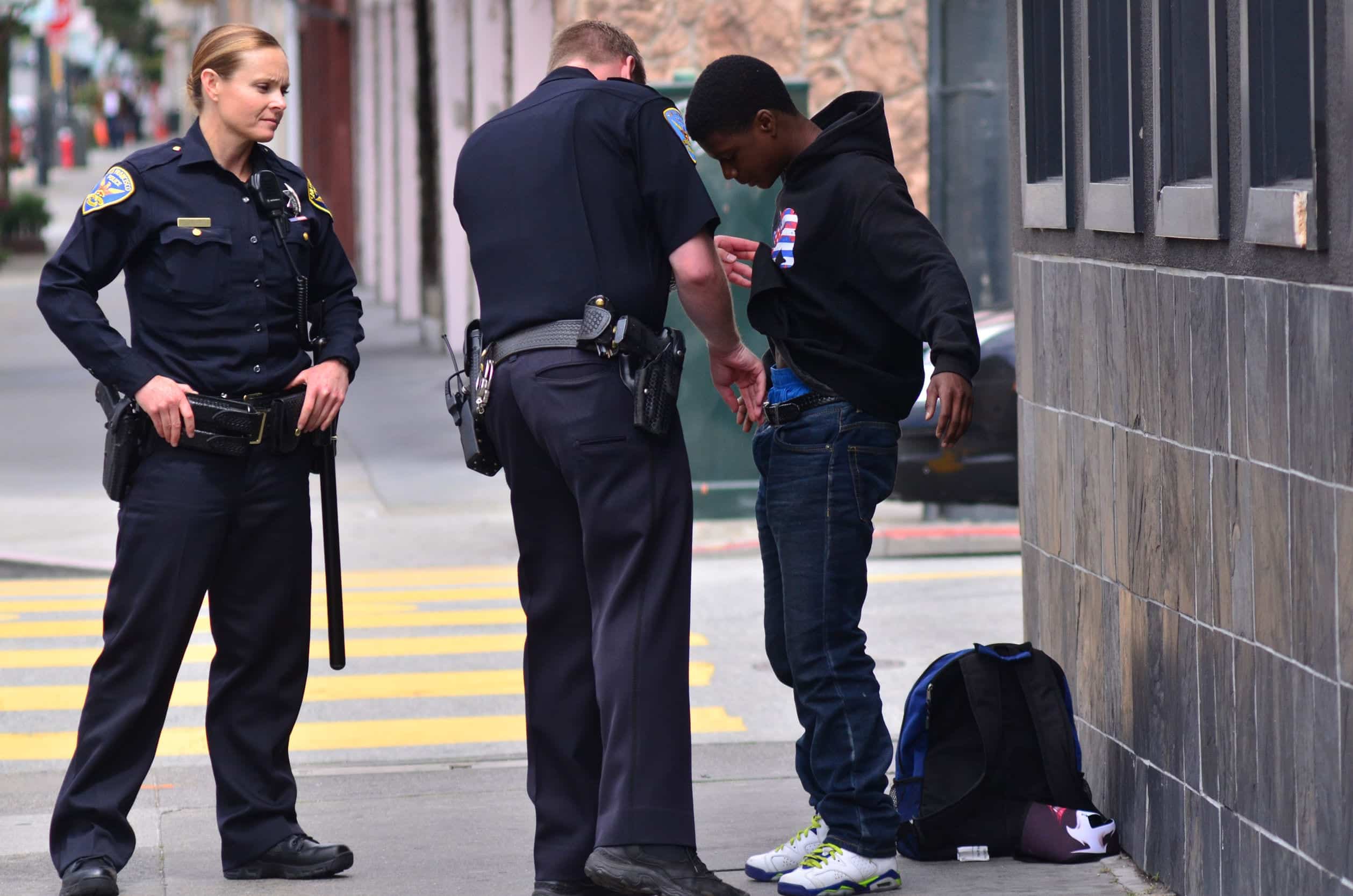- Home
- THE FIRM+
- Criminal Defense+
- CASE RESULTS
- AREAS WE SERVE+
- FAQ’s
- Blog
- Contact
AZHARI LLC BLOG

Posted By: Sami Azhari
Category:
You’re stopped by the police. Maybe they’re knocking on your front door. Or perhaps you’ve been pulled over in your car. For many Americans, this can be a terrifying situation.
Altercations with police can go south quickly, as we’ve seen on countless Facebook Live videos and in news headlines.
Why are police interactions so scary? One of the reasons is that people are not always taught their rights. A person may not know what they are allowed to say, when they are required to answer questions, or when they can leave.
Police know this, and many officers use it to their advantage.
One of the biggest areas of confusion? Detainment vs. arrest. Below, we’re going to explain the difference between these two processes and your rights during each one.
What Is Detainment in Illinois?
Let’s say that a police officer sees you rushing out of a store with a few items. They have a reason to suspect that you left the store without paying. The officer can detain you while they figure out whether or not you were involved in the crime.
The “Terry Stop” and “Stop-and-Frisk”
The process of being stopped and held by officers is also known as a “Terry Stop.” If you are patted down to check for weapons, your terry stop has become a “stop-and-frisk.”
Stop-and-frisks are legal in Chicago, but officers must submit receipts and other paperwork if a stop-and-frisk is conducted.
Reasonable Suspicion
In order to conduct a Terry Stop or stop-and-frisk, all a law enforcement officer (or citizen) needs to detain someone is reasonable suspicion. This is a much lower bar than what is needed for an arrest.
When an officer can articulate why they believe you could be involved in a crime, they can detain you. You should not be detained for a long period of time, especially when the crime is minor.
On the other hand, if you are suspected to be involved in a murder, for example, you may be held for a period of days until the police can question you.
What Is an Illinois Arrest?
During the detainment process, law enforcement officers are looking for probable cause that links someone to a crime. Probable cause is a higher standard of proof than reasonable suspicion.
An officer must be able to provide specific facts, circumstances, and trustworthy information that connects the person to the crime. Credible witnesses and solid pieces of evidence may qualify as probable cause.
Committing a Crime in the Presence of Law Enforcement
If you are already detained or the officer believes you committed a crime in their presence, they can arrest you on the spot. You may receive a preliminary hearing to determine whether or not the officer had probable cause to make an arrest.
Reasonable cause is a lower standard of proof than “beyond a reasonable doubt,” which is the standard used in later trials to determine a person’s guilt.
Warrants Usually Accompany Arrests
Officers need a warrant for an arrest if they want to arrest a person at their home or in a public place. In order to search your home, officers may also need to obtain a warrant.
Once an arrest has been made, the officers will transport the alleged offender to a correctional facility. There, a person is fingerprinted, photographed, and processed. At this point, you will need bail money or a trial to be released.
What Are Your Rights During Detainment or Arrest in Illinois?
If an officer does not have probable cause to arrest you, they must let you go. If they cannot find that cause while detaining you, they must let you go.
Miranda rights apply to your case when you are arrested or when you are detained. Officers only have to read a person their Miranda rights after making an arrest. Still, you have the right to remain silent, even if you have only been stopped.
This is the best defense that you have until you get a lawyer on the phone. Resisting arrest, including arrests made by citizens, may otherwise result in criminal charges.
Implied Consent
Illinois does have exceptions to the protection of your rights. If you have been arrested under suspicion of DUI, the state’s “implied consent” laws kick in.
As the driver of a motor vehicle in Illinois, consent to a blood, breath, or urine test is implied after you have been arrested. If you refuse, you may be charged.
Arrested? Talk to an Illinois Criminal Lawyer as Soon As Possible
Once you have been arrested, it is crucial to reach out to a lawyer. You have the right to speak with counsel. Prosecutors will need a higher standard of proof to convict you of a crime. With the right defense lawyer, you can be out of jail and free again sooner rather than later.
About the Author
Sami Azhari has been working as a lawyer since 2007, after receiving his Juris Doctor from the Michigan State University College of Law. He has handled numerous state and federal cases and is known throughout the Chicago and Rolling Meadows area for providing his clients with high-quality, skilled representation. He has been recognized by SuperLawyers, the National Trial Lawyers Association, and other notable organizations, and has spoken at a number of legal conferences.



























































